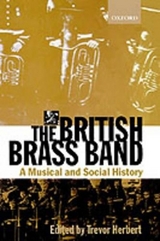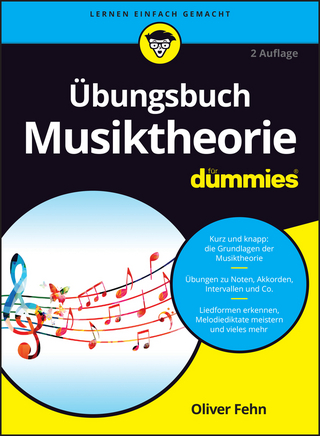
Bands
Brass Band Movement in the 19th and 20th Centuries
Seiten
1991
Open University Press (Verlag)
978-0-335-09703-6 (ISBN)
Open University Press (Verlag)
978-0-335-09703-6 (ISBN)
- Titel erscheint in neuer Auflage
- Artikel merken
Zu diesem Artikel existiert eine Nachauflage
This work on brass bands brings together the work of most of the principal authorities on the subject. It covers the history of brass bands from their origins in 19th-century Britain, to their place in musical culture today.
This work is devoted to brass bands and brings together the work of most of the principal authorities on the subject. The British brass band is a product of the 19th century - in the final decades of Victoria's reign publishers estimated that there were 40,000 bands in the country. Audiences for open-air contests and concerts were measured in tens of thousands. By that time the brass band had acquired most of the main musical characteristics that define it as a genre. By that time, also, the social image of the brass band had been crystallized. That image, with specific resonances of class, geography and hedonism, has survived largely intact, and often provides fodder for cliche and caricature. The brass band movement today flourishes, if on a small scale, still hovering between "art" and "popular" music and existing in a self-contained pocket of British musical culture observing its own conventions but influenced by, and influencing, other areas of musical activity. This book offers the first major challenge to the cliche and caricature associated with brass bands and delves into the movement to analyze and explain it.
The first two chapters map out the development of brass bands in the 19th and 20th centuries. This is followed by an examination of the history of brass band contests, which many regard as the "raison d'etre" of the movement. The remaining two chapters offer a broad context for the other parts of the book. One looks at the manner in which the brass band movement, being an essentially text-based, conductor-led activity, replaced the more improvisatory "plebeian" tradition; the other examines the way in which the British brass band model was imitated in Australia. The appendices include an extensive essay on the development of brass band instruments since the 19th century.
This work is devoted to brass bands and brings together the work of most of the principal authorities on the subject. The British brass band is a product of the 19th century - in the final decades of Victoria's reign publishers estimated that there were 40,000 bands in the country. Audiences for open-air contests and concerts were measured in tens of thousands. By that time the brass band had acquired most of the main musical characteristics that define it as a genre. By that time, also, the social image of the brass band had been crystallized. That image, with specific resonances of class, geography and hedonism, has survived largely intact, and often provides fodder for cliche and caricature. The brass band movement today flourishes, if on a small scale, still hovering between "art" and "popular" music and existing in a self-contained pocket of British musical culture observing its own conventions but influenced by, and influencing, other areas of musical activity. This book offers the first major challenge to the cliche and caricature associated with brass bands and delves into the movement to analyze and explain it.
The first two chapters map out the development of brass bands in the 19th and 20th centuries. This is followed by an examination of the history of brass band contests, which many regard as the "raison d'etre" of the movement. The remaining two chapters offer a broad context for the other parts of the book. One looks at the manner in which the brass band movement, being an essentially text-based, conductor-led activity, replaced the more improvisatory "plebeian" tradition; the other examines the way in which the British brass band model was imitated in Australia. The appendices include an extensive essay on the development of brass band instruments since the 19th century.
19th century bands - the making of a movement, Trevor Herbert; what's wrong with brass bands? cultural change and the band movement, 1918-c.1964, Dave Russell; brass band contests - art or sport?, Clifford Bevan; from "repeat and twiddle" to "precision and snap" - the musical revolution to the mid-19th century, Vic and Sheila Gammon; the brass band in Australia - the transplantation of British popular culture 1850-1950, Duncan Bythell. Appendices: instruments and instrumentation in brass bands, Arnold Myers; calendar of major developments of the brass band contest, Clifford Bevan; winners of the British Open and National Contests, 1853-1989, Clifford Bevan.
| Erscheint lt. Verlag | 16.6.1991 |
|---|---|
| Reihe/Serie | Popular Music in Britain |
| Verlagsort | Milton Keynes |
| Sprache | englisch |
| Themenwelt | Kunst / Musik / Theater ► Musik |
| ISBN-10 | 0-335-09703-0 / 0335097030 |
| ISBN-13 | 978-0-335-09703-6 / 9780335097036 |
| Zustand | Neuware |
| Haben Sie eine Frage zum Produkt? |
Mehr entdecken
aus dem Bereich
aus dem Bereich



